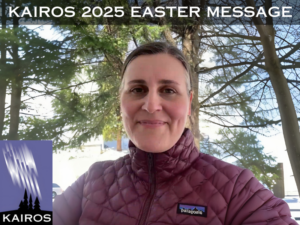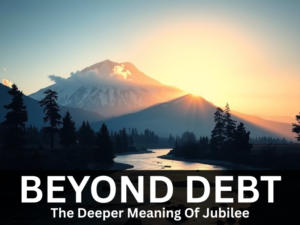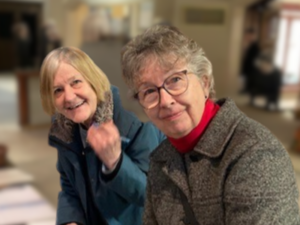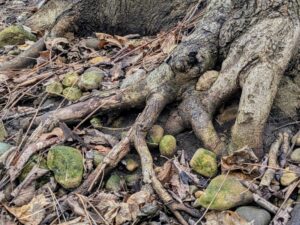Spirited Reflection: Living Jeremiah through a hurricane
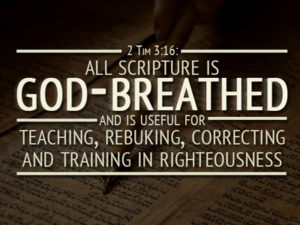
Like many of us, there is a sense of calm and re-assurance that I get from those familiar words of Scripture: “for I know the plans I have for you,” declares the Lord, “plans to prosper you and not to harm you, plans to give you hope and a future.” (Jeremiah 29:11)
Like many of us, I have shared these words from Jeremiah with others going through a tough moment, experiencing pain, the loss of a family member, the loss of a job, or some other sudden and seemingly unexplainable hurt. I have shared these words with friends in countries where I have worked: Bangladesh, Mali, Tanzania and Haiti, this latter country trying to recover today, as I write these words, from the whirling hurt of Hurricane Matthew. A few hours of 220 km per hour winds and there are over 61,000 Internally Displaced People.
Yet these words of Jeremiah 29 are words that Paul knew of when he wrote to Timothy that all Scripture is “God-breathed… useful for teaching, rebuking, correcting and training in righteousness.” (2 Timothy 3:16)
But there is more to Jeremiah 29. A few verses earlier in this same passage, Jeremiah says to “seek the peace and prosperity of the city to which I have carried you into exile. Pray to the Lord for it, because if it prospers, you too will prosper.” (Jeremiah 29:7)
Incredulous as it may seem, the words of Jeremiah to the Israelite exiles living in Babylon are about praying for their captors, their enemy who destroyed their beloved Jerusalem and relocated them 1000 kilometres away – a forced displacement not on the back of donkeys or horses.
And not just praying for Babylon, but actively seeking their prosperity, through planting trees, building houses, investing in their infrastructure (something that has not happened in far too many vulnerable communities and now deforested hillsides of Haiti, making the effects of hurricanes even worse).
There is even more to the book of Jeremiah by the way of useful, God-breathed teaching. Jeremiah proclaimed the need for justice, kindness and mercy at a time of Middle East upheaval as Babylon and Egypt fought for control and resources. The decisive Battle of Carchemish – the record of which is now in the British Museum – was fought during Jeremiah’s lifetime, in 605 BC, between the armies of Egypt and Assyria against the armies of Babylonia, allied with the Medes, Persians and Scythians.
I grieve for Haitian brothers and sisters who have suffered from the effects of yet another hurricane – as Haiti is still recovering from the 2010 earthquake that killed over 200,000 and destroyed so many houses, weakly built as they were but shelters from the elements nonetheless, homes in which to gather, laugh and sleep. I am reminded that natural disasters are made much worse because of historic deforestation and resulting flash floods from rainwater running down hills unimpeded. Back in 1980, Haiti still had 25% of its forests, allowing the nation to withstand heavy rain events like 1979’s Category 3 Hurricane David without loss of life.
In reading Jeremiah, and in reflecting on the deep challenges affecting Haiti, I am reminded that God’s wish for our peace and well being is a yearning for all of our peace and well being, together, across faraway places. That we together, through our prayer and action, seek that well being. That we know that our peace and prosperity – the original Hebrew sense of the word prosperity being more about well being, completeness, a deeper shalom — are closely interconnected.
The words that underlie the rationale for a designated day such as the International Day for the Eradication of Poverty on October 17 each year are important. So too are the words, targets and indicators embedded in the 2030 Agenda for Sustainable Development: Transforming our World. Poverty is a violation of human rights. We do need to come together, as a global community, to end poverty and discrimination. And, yes, together, we need to build a sustainable future in which the needs of the present are met without compromising the ability of future generations to meet their own needs.
We can and do need to rally around designated days and global agendas for a better world for all. However, the historic and prophetic words of Jeremiah still speak to us today. They give meaning, rationale and inspiration to seek the peace, the well being, the deep shalom of all those around us. Indeed, the prophetic words throughout all of the book of Jeremiah are a plea to live justly and out of gratitude to God. They’re firm and foundational ground for us (and yes, Jeremiah 29:7 is a plural ‘you,’ God’s plans for our future together).
Will Postma is the Executive Director with PWRDF, the Primate’s World Relief and Development Fund.
Will joined PWRDF in June, 2016 following work with a range of international relief and development organizations, including Save the Children, World Renew, CARE and World Vision. Will has written and contributed to publications on topics from Participatory Development to Capacity Building to Results Based Management. He has a passion to learn, and learn with others, as to how Scripture informs our practice together for justice and peace. He joined the KAIROS board in September 2016.









